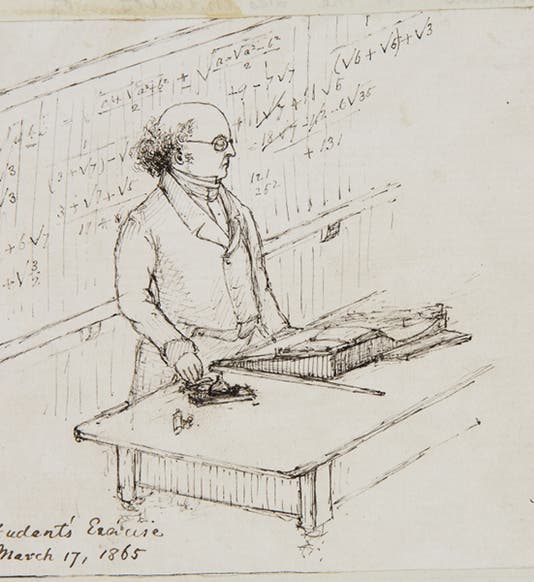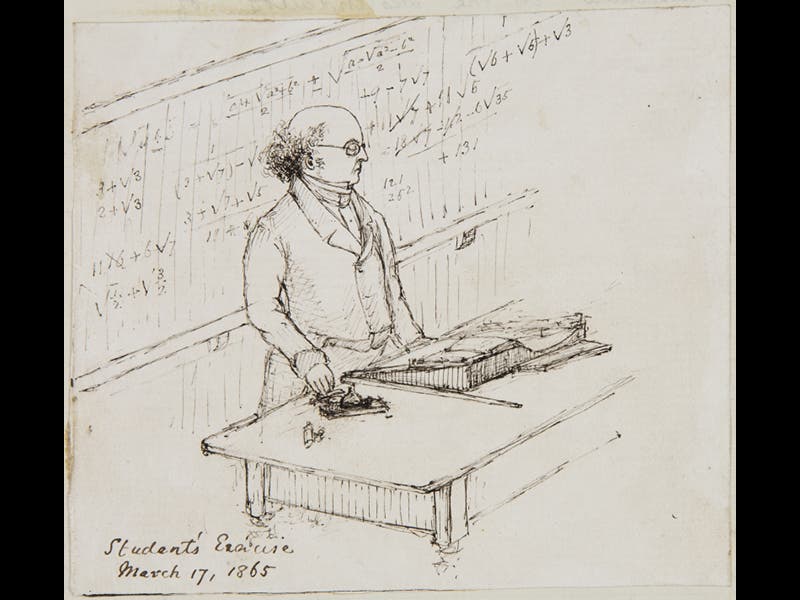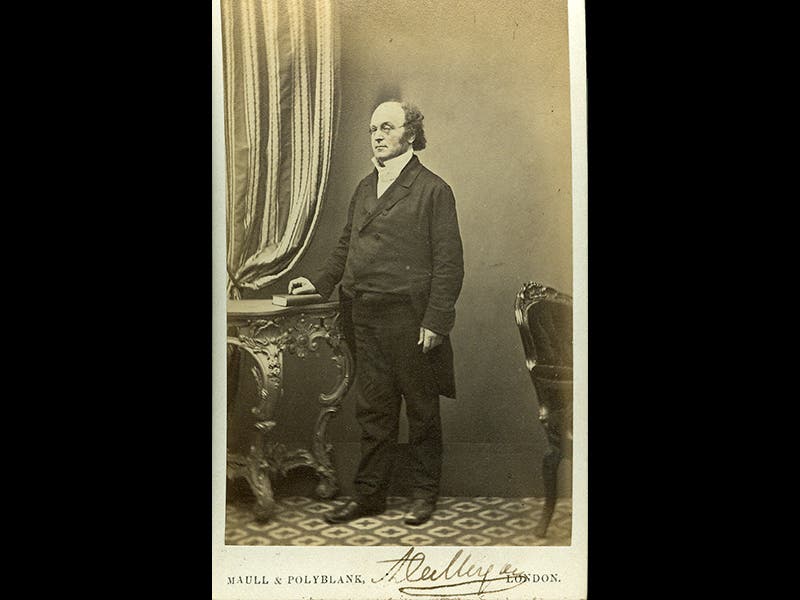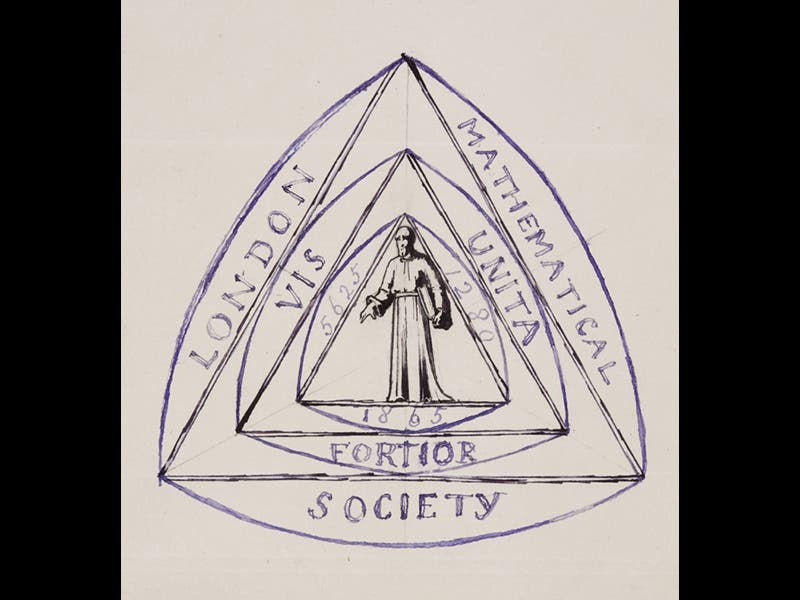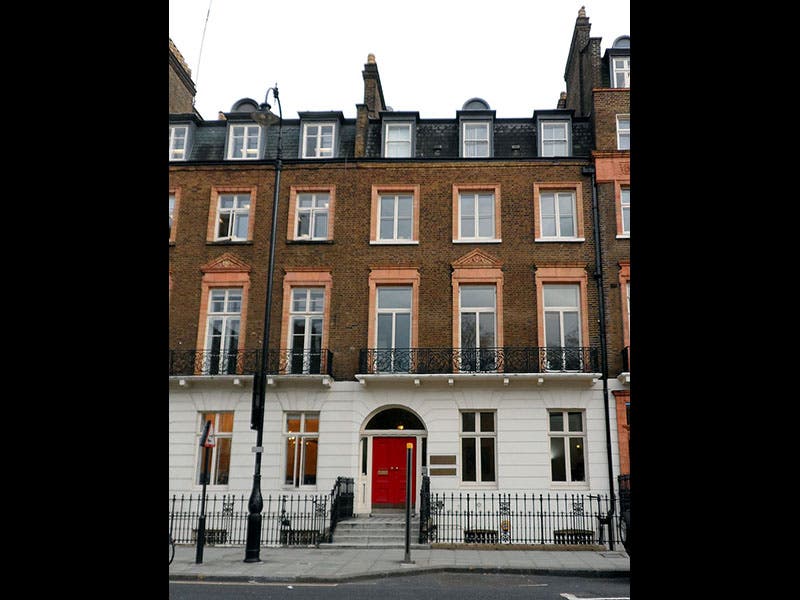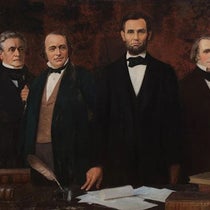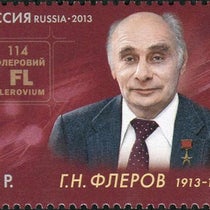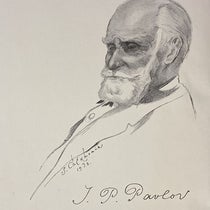Scientist of the Day - Augustus De Morgan
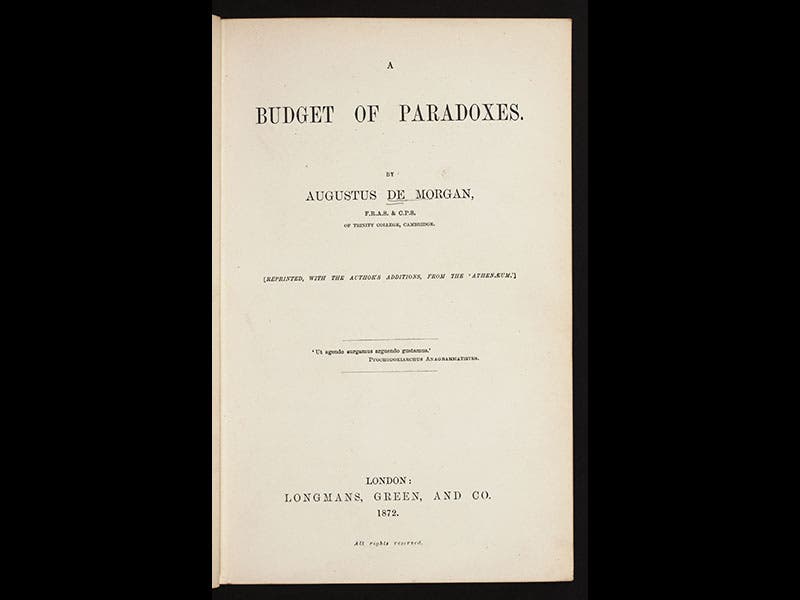
Augustus De Morgan, a British logician and mathematician, was born June 27, 1806. De Morgan was a brilliant mathematician who, with George Boole, was one of the founders of symbolic logic in England, but because he was a Unitarian and refused to subscribe to the Thirty-Nine Articles of the Anglican Church, he was denied a fellowship at Oxford or Cambridge, and so he had to look elsewhere for institutional support. As chance would have it, London University was being founded about this time (1826). Soon to be known as University College, London (UCL), this was England's first non-sectarian college. De Morgan, without any experience, applied to be the first Professor of Mathematics, and surprisingly, he was chosen. He would hold that position, with one interruption, for the rest of his life.
De Morgan was also active in the Society for the Diffusion of Useful Knowledge, founded at the same time as UCL, to take learning out of the hallowed halls of academia and into the household. He wrote anonymously quite a number of mathematical treatises for the Library of Useful Knowledge, as the Society's publications were called, including a primer called On Probability (1830) that we are at this very moment considering for acquisition. He also had a particular antipathy for metaphysics, and he once wrote to John Herschel: "There are no writers who give us so much must with so little why, as the metaphysicians.”
De Morgan does not seem to have had much use for scientific societies--he never became a fellow of the Royal Society, for example--but he did agree to take on the presidency of the London Mathematical Society, when it was founded in 1865, and he designed a logo for the Society, consisting of an image of Euclid, the motto Vis unita fortior (a united force is stronger) and the three numbers: 1865, 5625, and 1281. The numbers represent the Society’s founding date in the Christian, Jewish, and Muslim calendars. Such an ecumenical attitude toward other religions is a wonder to behold, since it was practically unheard of in Victorian England. Several years ago UCL organized an exhibition to celebrate the 150th anniversary of the Society, and they displayed a sketch of Autustus’ logo, drawn by his wife Sophia (third image), as well as a contemporary sketch of De Morgan in the lecture hall, made by a student (first image). The Society still meets in the De Morgan House on Russell Square (fourth image). Our other image shows a carte de visite of about the same time, 1865 (second image).
De Morgan's most famous book, A Budget of Paradoxes (1872), was put together after his death by Sophia, compiled from columns he had written for The Athaeneum. It might be subtitled: Crackpots I Have Known, and it is a most refreshing look at all manner of scientists, sane and loony, whose ideas just don't fit with the prevailing view of things. It has never gone out of print. We have the first edition in our History of Science Collection (fifth image).
Dr. William B. Ashworth, Jr., Consultant for the History of Science, Linda Hall Library and Associate Professor, Department of History, University of Missouri-Kansas City. Comments or corrections are welcome; please direct to ashworthw@umkc.edu.

